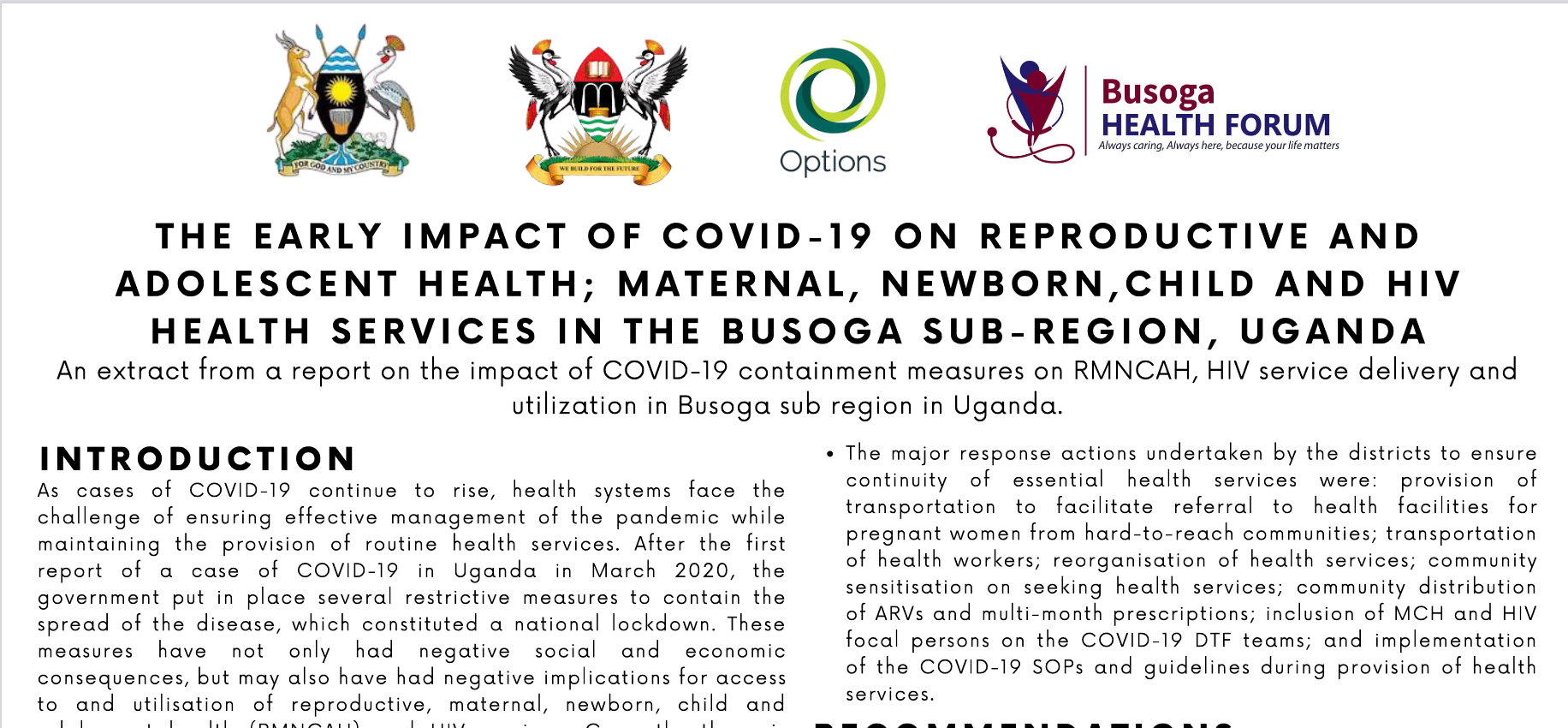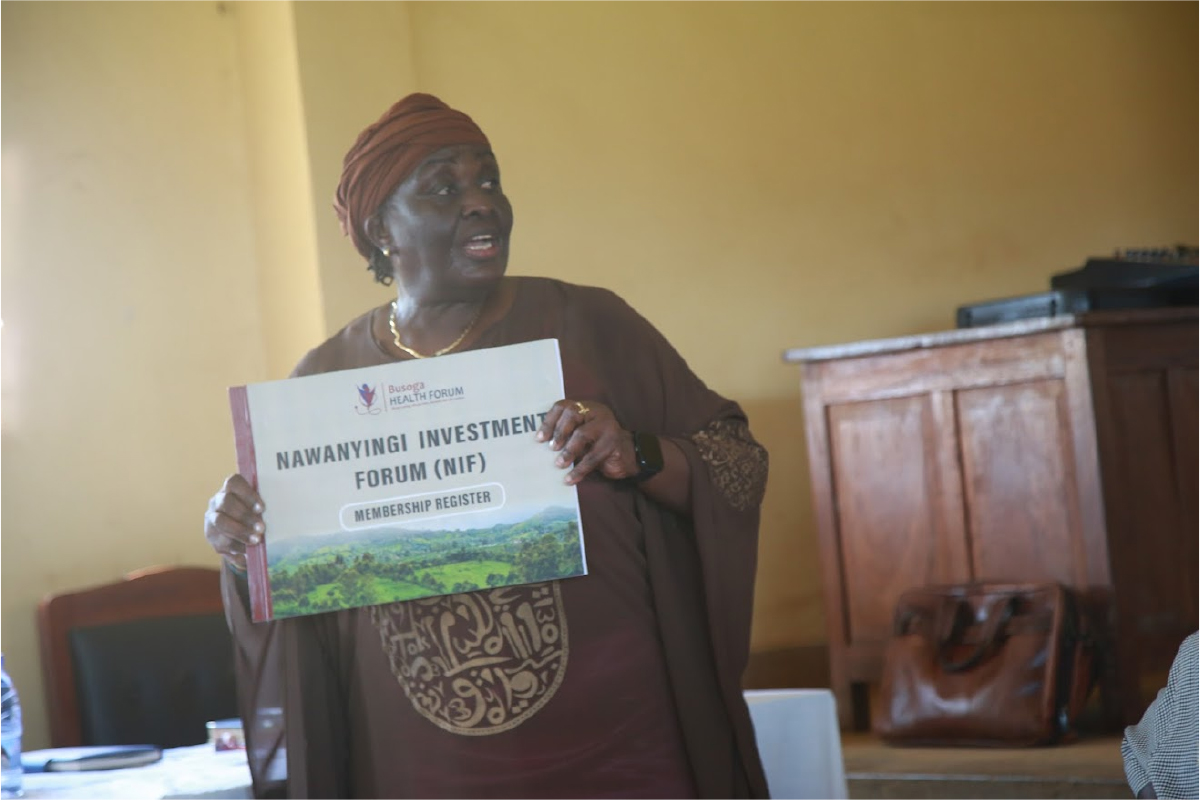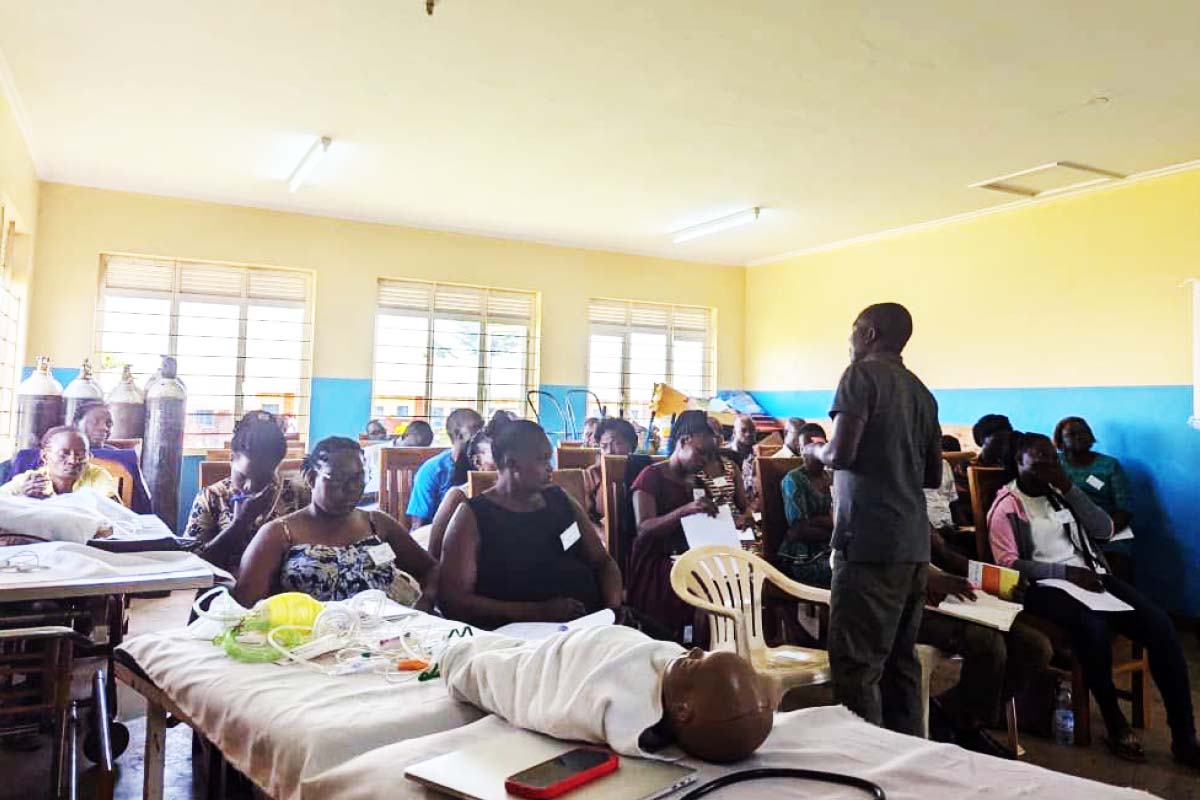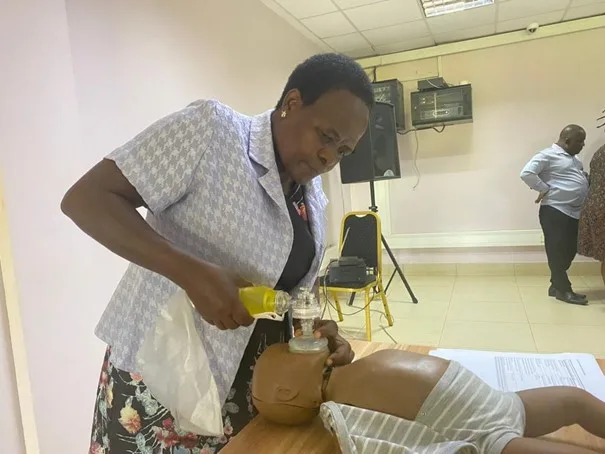
Impact of COVID-19 on RMNCAH, HIV services in Busoga
A new study conducted the eleven Busoga sub-region districts has found that there was an overall decline in delivery and utilisation of some key RMNCAH and HIV services during the national lockdown.
According to the study, the most affected services were general outpatient services, antenatal care, post-abortion care, health facility deliveries, immunisation services and initiation of ARVs to HIV-exposed infants.
After the first report of a case of COVID-19 in Uganda in March 2020, the government put in place several restrictive measures to contain the spread of the disease, which constituted a national lockdown.
The data showed increases in the numbers of newborn babies with low birth weight and neonatal and maternal deaths.
“The data shows that earlier gains in the reduction of teenage pregnancies have now been reversed and beginning to register an increase in number of teenage pregnancies,” read the findings. “The observed changes may be attributed to a number of factors, including transportation difficulties, suspension of community health services, changes in health-seeking behaviour due to the fear of acquiring COVID-19 at health facilities, challenges by adolescents in seeking family planning/sexual reproductive health services, stockouts of essential medicines and commodities, reduced household income, food insecurity, distress, anxiety, and disruption of social and protective networks during the national lockdown.”
Download the report here and read more.





